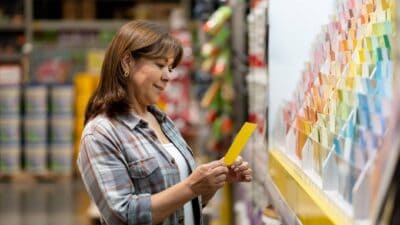The Reject Shop Ltd (ASX: TRS) share price is gaining in morning trade, up 1.8% to $4.95 per share.
Below we take a look at the ASX retailer's results for the 2021 financial year ending 30 June.
Reject Shop share price lifts on results
- Net profit after taxes (NPAT) (post AASB* 16) of $8.3 million, up 643% year-on-year from $1.1 million.
- Earnings before interest and taxes (EBIT) (post AASB 16) of $18.6 million, up 99% from $9.3 million in FY20.
- Sales of $778.7 million, down 5.1% from $820.6 million in FY20.
- Net cash position at 27 June of $73.0 million, down from $92.5 million year-on-year
- No final dividend declared
(*Australian Accounting Standards Board)
What happened in FY21 for the Reject Shop
The Reject Shop's share price could be enjoying a boost today after the company's sales came in slightly higher than the guidance it provided in early June.
While sales were up 5.1% on FY20 they remained down 1.9% on FY19. The retailer is using FY19 as a pre-COVID benchmark, as it reported significant impacts from renewed lockdowns and border closures. This saw footfall in its stores down around 19% from the 2019 financial year.
The company's international supply chains were also disrupted by the ongoing pandemic, with it incurring some $9 million of unbudgeted international shipping charges over the financial year.
Costs savings saw the total cost of doing business (CODB) fall by around $22.5 million year-on-year. According to the release, there were $8.8 million of savings in administrative expenses and $13.7 million in store expenses.
While cash levels were down from FY20, the Reject Shop reported this was mainly due to higher inventory levels, which were up approximately $29 million or 41% from $70.9 million at 30 June 2020.
The Reject Shop has also been renegotiating expired leases and closing unprofitable stores, especially in large shopping centres and CBD locations. It's replacing those closures with new store openings in neighbourhood and strip locations.
In FY21, the company renegotiated a total of 80 leases to achieve rent savings.
What did management say?
Commenting on the results, Reject Shop CEO Andre Reich said:
Our objective in FY21 was to grow profit through cost reduction driven by business simplification and operational efficiency. We have reduced the cost of doing business by approximately $23 million during the year, which is a significant achievement and exceeded our stated targets for FY21…
We believe the discount variety sector presents a significant opportunity for growth over the medium to long term. As Australia's largest discount variety retailer, and with our strong balance sheet, The Reject Shop is well positioned to capture this opportunity. While we will continue fixing elements of the business during FY22, we also expect to ramp-up our growth plan via store network expansion and by growing our online presence.
What's next for the Reject Shop?
The Reject Shop will continue its partnership with DoorDash in FY22 to grow its online sales. The company said that online sales at the moment were "not material".
On the leasing front, it expects to renegotiate some 140 leases in the upcoming financial year, with an eye to further rent savings.
The retailer did not to provide specific guidance for FY22, stating that the operating environment remained uncertain.
The Reject Shop share price is down 26% over the past full year.









